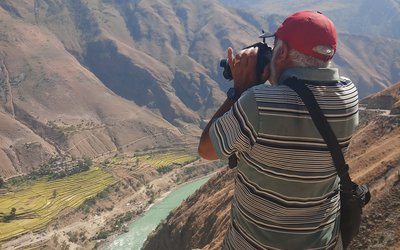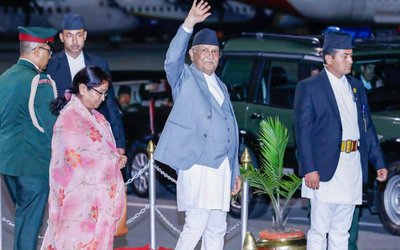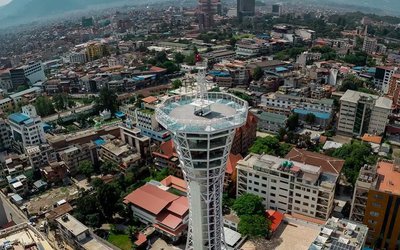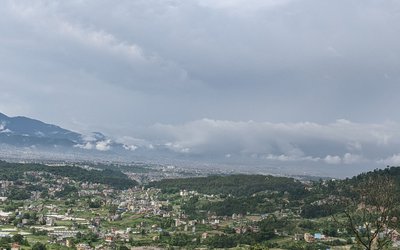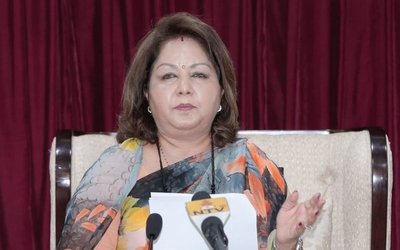Nepal’s transitional justice (TJ) process once again finds itself in uncertainty after the formation of its commissions in May 2025, and with that, the rights of conflict victims to justice and reparations are under serious threat. Thus, the foundations of peace, tolerance, justice, security, and prosperity- expected to be secured through the 2006 Comprehensive Peace Agreement (CPA) continue to be eroded.
As TJ processknown as an integral part of the peace process,has completed 18 years, conflict victims still await justice, reparations, reconciliation, and relief. These expectations have intentionally jeopardized by main political parties, including Nepali Congress, CPN-UML, and CPN (Maoist Centre)due to existing mindset of immunity. In retrospect, perpetrators of serious human rights violations continue enjoy impunity. This undermines both the values of rule of law, human rights and right to justice of victims, and the public images of much-celebrated peace process.
Keyprinciples of TJ process typically incorporate prosecution, truth-seeking, justice, reparation, reconciliation, vetting and institutional reform. While its principles are universally recognized, the means and methodologies for achieving these vary depending on the political context and nature of the conflict and human rights violations. Nevertheless, such processes must be legitimate and publicly acceptable not only to victims but also to national and international stakeholders. In theory, it formally acceptsuniversal norms of TJ, but in practice, victims remain alienated from the selection process of the commissioners.
A Troubled Background
Despite successful implementation of the key components of the CPA, including state restructuring, management of former Maoist combatants, and Constituent Assembly election, Nepal has faced significant hurdles in activating its TJ process. Of course, initial legal drafts were complex and heavily influenced by partisan interests that favored immunity making it impossible to adopt the victim-friendly legislation. After the adoption of law in 2014, eight years after the CPA, has completely failed to recognize the voices of victims or adhere to established principles of TJ, including justice and reparation.
Disguising the law’s ambiguities and opposition from victims, two separate commissions wereinstitutionalized in early 2015, the Truth and Reconciliation Commission (TRC) and the Commission on Investigation of Enforced Disappeared Persons (CIEDP). Not surprisingly, both the commissions failed to deliver justice to the victims, and establish acceptable frameworks for prosecution, reparation and reconciliation. Even after two extensions totaling four years, the commissions remained ineffective, inefficient and dysfunctional. In 2020, both commissions were again reconstituted, but citing the COVID-19 pandemic, they squandered another two and a half years, and diminished the hope of justice and integrity of the commissions. It was mainly resulted due to lack of competency, credibility, legitimacy and public acceptability of the appointed officials.
In both times, the commissions were blatantly failed to win over the confidence of victims and its stakeholders. However, the failures of the commissions cannot solely be attributed to the individuals appointed. First, it was affected due to unfriendly policy of the state. The ambiguity in the enabling law has made significant contribution for failures. Second, the competency of the appointed officials has triggered to ensure public trust and acceptability. Third, the heavy influence of political parties while appointing the officials has hampered social integrity and public legitimacy. Fourth, inability to assure sufficient human, financial and logistic resources by the government have made commissions functionless. Fifth, public acceptance of commissioners has contributed to derail the TJ process. Seventh, quality of officials, including public leadership and decision-making capacity has also hindered to smoothen the process. As a result, victims are continuing to further victimized, and forced to live under pain and trauma.
The Farce of Recommendation Committee
Due to mounting dissatisfaction and pressure from conflict victims and its stakeholders, the government passed an amendment to the 2014 Commission on Investigation of Enforced Disappearances, Truth and Reconciliation Act in August 2024. But key issues, including definitions of gross human rights violations, statute of limitations on sexual violence, and sentencing reductions etc. continue remained unresolved. Nevertheless, conflict victims cautiously engaged in the formation of TJ mechanisms.
In October 2024, the government formed a "recommendation committee" (RC) led by former Chief Justice Om Prakash Mishra as per the law. Earlier the RC was formed in April 2024 to avoid contempt of court, which has become ineffective due to denial of the National Human Rights Commission to send its representative. As per mandate, the RC initiated the selection process for the commissions, called for nominations, held fewconsultations with victims, and published a shortlist of candidates by adding some potential candidates by using its prerogative. However, the RC failed to nominate the commissioners stating that they couldn't reach to unanimous decision, thereby, the RC automatically dissolved due to expiry of its tenure.
Though it has claimed a lack of consensus, the RC ultimately succumbed to political pressure. It was obvious reason of political interference that plagued the process from the beginning of selection process.This undermined the committee’s independence, impartiality, and credibility, and revealed the political deception toward TJ process, and justice to victims. Moreover, it amounted to a conspiracy against their rights to justice and reparation.
While the dilemma on forming TJ mechanisms, the government again formed the RC with identical members (except for a NHRC representative) in March 2025. The process remained largely unchanged,and followed through same procedure. But again, victims and rights groups raised serious objections, accusing the process of political bias and calling for its cancellation and replacement with a transparent and credible process. Furthermore, majorities of victims' groups expressed their concern stating that they would boycott the commissionsif formed under such flawed procedures.
Unfortunately, the RC yielded to government influence and recommended appointees in line with the wishes of the three major political parties. However, the process lacked transparency, acceptability and public confidence, and the RC failed to justify its decisions. Though legally valid, the appointments lacked public legitimacy, reinforcing doubts about the committee’s autonomy, fairness and integrity. As a result, the country's TJ process remains continue uncertain, and conspiracy against victims continues.
A Politically Captured Process
Although newly appointed officials are legally qualified, victims remain highly dissatisfied, raising serious questions about their legitimacy and competency. There’s growing mistrust on those officials of TJ commissions between the government and victims/human rights communities. Without their cooperation, these bodies cannot properly function,and will be unable to fulfill the aspirations of peace process.
According to national laws and international standards, and the Supreme Court verdict, TJ commissions must not only be legally valid but also acceptable and credible to stakeholders, especially victims of conflict. Therefore, the selection process must be transparent, andthe participation of victims at every stage is essential.
Even though the appointed officials of both commissions may meet legal criteria, their competency to address victims' suffering and deliver justice is questionable. Such officials must be competent with academically and professionally as well as hold extensive experience on human rights, conflict resolution and transitional justice. In addition, they should uphold higher social integrity, public credibility and legitimacy with leadership quality and decision-making capacity. Above all, these commissions must reflect the nation’s diversity and represent the voices of victims.
The capacity of current commissioners is under scrutiny from the very first day. For example, a recent public notice of the TRC that gave survivors of sexual violence for three months period to register complaints was widely condemned victim groups, particularly by victims of sexual violence. It was very insensitive and deceptive, and hurtful to self-dignity of the victims of sexual violence.Similarly, the CIEDP disclosed the names of participants of the consultation without their consent, which is considered another serious misstep. Such reckless and inappropriateactions reveal both insensitivity and incompetency of the officials.
As TJ process reaches a critical crossroads, stakeholders seem increasingly divided. Politicalinfluenced interest groups are trying to split victims and civil society. While commissions are supposed to be independent, the government appears to be exerting control, under the guise of coordination. An informal political mechanism led by the TJ Advisor to the Prime Minister should serve only a facilitative role, not to interfere entire process.
Meanwhile, almost all major victims' networks and some rights groups are campaigning for the dissolution of the current commissions and restart a transparent and credible selection process. They’ve warned of forming a "Civil Commission" as symbolic gesture. Though it may not serve to fulfill the expectations of victims, such a body could rally victims around shared demands and common interest.
While the commissions were formed more than two months ago, key international actorssuch as the UN, US, UK, EU, and Switzerlandhave publicly remained silent. It indicates their dissatisfaction with the selection process. Similarly, the victims' groups have recently called to the Office of the United Nations High Commissioner for Human Rights to withhold its support for Nepal’s transitional justice commissions and support their demand for the resignation of the newly appointed commissioners. Without strong international support, including technical, financial, moral, TJ process cannot be concluded in which international legitimacy requires independence, impartiality, and competence.
Conclusion
It is obvious that Nepal’s TJ process has been dominated by political parties even though it is considered as the combination of political, judicial and peacebuilding processes. Such politically influenced process institutionalizesimpunity and immunity instead of ensuring victims of right to justice and reparation. Therefore, it is essential to appoint competent officials through meaningful participation of victims at all levels. It will ensure credible and transparent process. If victims' concerns are continue ignored, the pain of conflict victims will continue persist and they will be further traumatized, while perpetrators continue to enjoy impunity and dignified life in the society. Furthermore, Nepal may increasingly face international embarrassment for failing to deliver justice to its own citizens.
The author is known as the expert on peace, security and human rights, and can be reached through peace.sb@gmail.com
- Transitioning To Stalled Transitional Justice Process
- Jan 24, 2025
- Recession of Democracy
- Sep 18, 2024
- Hope For Justice And Tranquility
- Aug 28, 2024
- Federalism And Policing: Challenges And Opportunities
- Apr 03, 2022

